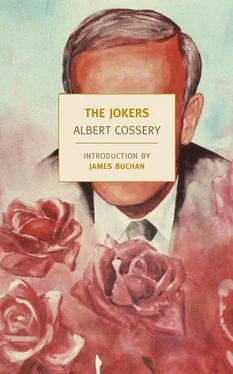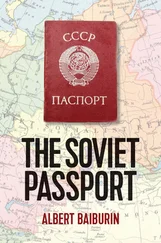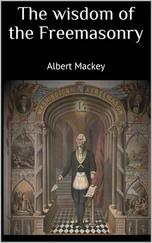The world at the end of the deserted promenade looked eerie and vaguely fantastical: she could have been watching the scene from a planet thousands of kilometers away. On the dance floor, surrounded by greenery, fountains, and dwarf palms, couples moved like marionettes controlled by a madman. She saw her father sitting in the governor’s box, separated by a railing from the rest of the guests. The governor was holding court before her father, two men she didn’t recognize (they did nothing but nod their heads in a sign of agreement), and a well-known singer, who according to rumor had been the governor’s mistress for the last several months. Her name was Om Khaldoun, and she was old, fat, and as hideously made-up as a pharaoh’s mummy; she’d escaped ruin thanks to the narcissism of certain men of standing in the city. To be the lover of a famous singer was a chance to show off their fortune — the word was that she charged these archaeologists of the flesh a pretty penny. Every time she saw Om Khaldoun, Soad wondered how any man — however philistine and lacking in aesthetic sensibility — could make love to such a withering, flabby creature for vanity alone. Once the singer had been her father’s mistress, and the girl still held painful memories of the time. That was when her hatred for her father grew into insurmountable disgust; she wouldn’t let him near her anymore, let alone touch her. He seemed contagious to her; he exuded the stench of old lady, like the stench of rot. Even after he broke things off with the singer, it was a long time before the girl could look at him without repulsion.
Soad’s father epitomized the greedy, power-hungry bourgeoisie who reigned over the city like a pack of jackals ripping into a carcass. He restricted his associations to his own kind — but only the more servile among them, people he could lord it over and put down as he pleased. He was insolent, disdainful — even with the governor. Soad, powerless and mortified, had listened for years as her father cut people down with the precision of an executioner. Nothing escaped his peremptory judgments or his furious condescending outbursts. These usually happened in the middle of the receptions he hosted in his sumptuous villa, as vast as a palace and swarming with servants. He’d start by welcoming his guests as if their very arrival was a humiliation to be avenged as soon as possible. Then, after shaming his visitors, he’d stir up bitter arguments about business and politics. Nobody dared contradict him: the virulence of his rejoinders was legendary. His way of carrying on a conversation — he would submit his interlocutor to a stream of scathing invective — attracted the city’s elite in droves; each came to see the others insulted. But his daughter he treated with a careful, almost timid benevolence. Her rebellious temperament frightened him; he suspected that a full-scale revolt was in the making. All he asked was for her not to cause a scandal. That was what panicked him: scandal. He trembled at the thought of her getting pregnant, dreading the prospect like nothing else. And Soad knew it; every day she could see him staring at her stomach, as if expecting to see it swell with that terrible scandal. But having settled on this obsession, he paid no further attention; apart from that, he knew nothing about her.
Heykal’s silhouette emerged from the lights of the disco, and she watched him walk toward her on the promenade, long and slim and superb, like an enigmatic god emerging from the void. She leaped to her feet but didn’t run toward him; she waited valiantly until he was in front of her before throwing her arms around his neck and hanging from him, bouncing up and down and sighing hugely and happily, like a child who has been given a fantastic toy and can’t believe her luck. He endured her caresses with tender indulgence. He was susceptible to these signs of adoration, to the rush of inarticulate words like the babbling of a drowning victim come back to life — in short, the frenzied behavior of a young girl in love. She continued kissing him and rubbing up against him, shameless in her desire, clearly hoping to lure him onto the sand. Finally Heykal freed himself from her clutches and pulled away gently.
“All right, little girl, that’s enough for now,” he said.
“You’re so mean to me,” she moaned.
She was distraught, on the verge of tears, pouting like a child who’s been mistreated by an adult. But it was an act, a way of playing the victim to get his sympathy. She never knew if he was happy to see her or not. He never told her he loved her. He was always impassive, even in the throes of passion, with the same wry smile on his lips, the same expression of bottomless pride — not so much remote as willful and controlling.
“You really are mean to me,” she said again, pounding at his chest with her fists.
Heykal laughed.
“Come now, let’s stop the theatrics,” he said, taking her by the arm and escorting her along the beach.
The truth was, he didn’t want to make love to her there because he was afraid of ruining his clothes. He had to be in the casino soon, on a mission requiring utmost discretion; an unkempt outfit would make him stand out. And at the moment, anyway, he felt an excitement that was quite different from carnal desire as he contemplated the web he had woven for the governor and the inevitable repercussions of the postering campaign.
They stopped where the casino’s private beach had been roped off. Soad sat on the rope pretending to swing. Heykal remained standing, looking at her, then sat down next to her and put his arm around her waist. From here the darkness seemed infinitely opaque; the only light was the glimmer of the stars reflected in the sea. The music had stopped, and with the sudden silence the faintly glowing buildings of the casino were plunged into a catastrophic remoteness. Heykal felt they were the only survivors in an annihilated world; suddenly possessed by a strange feeling of power, he pulled Soad firmly and desperately to him, as if to defend her even from death.
Then he let go and asked:
“Is your father here?”
“Yes, he’s with the governor. How’d it go tonight?”
“Very well. The posters will be up by tomorrow morning. The portrait of the governor is so good it’s frightening; it’s even more lethal than the accompanying text. What I’d like is for you to pay close attention to the governor’s reaction. Do your best!”
“That’s all I am to you, a spy,” she said, pouting. “You’re so cruel!”
It was partially true; Soad had often spied on the governor when he met with her father. The governor still thought of her as a young girl and had no qualms about divulging official secrets in her presence. There was a time when the two men’s conversations made the young girl yawn. She found it dull to hear them go on about such stupefyingly serious matters of state. But ever since she’d known Heykal, she’d become quite curious about all the things that the governor, thanks to his studied stupidity, carelessly let slip. Whenever she could (and it was to amuse herself as much as to please him), she’d report back to Heykal, revealing the details of the governor’s plots and plans.
She got up and stood before him imploring:
“Do you love me?”
Coming from the mouth of a little girl this banal question was especially poignant. Heykal felt sobered; he wouldn’t allow himself to be sucked down into love’s murky waters. What he felt for her was nothing like the ferocious passion she seemed to harbor for him. She mistook the real and incomparable complicity that bound them together for a mere sentimental bond, made up of nothing but platitudes and habit. But how could he explain the difference to her? She had no idea, and it would be cruel for him to disabuse her. She was a woman, after all, and he couldn’t ask her to deny her nature.
Читать дальше












